A negotiating table without women: When the most-effected voices are ignored
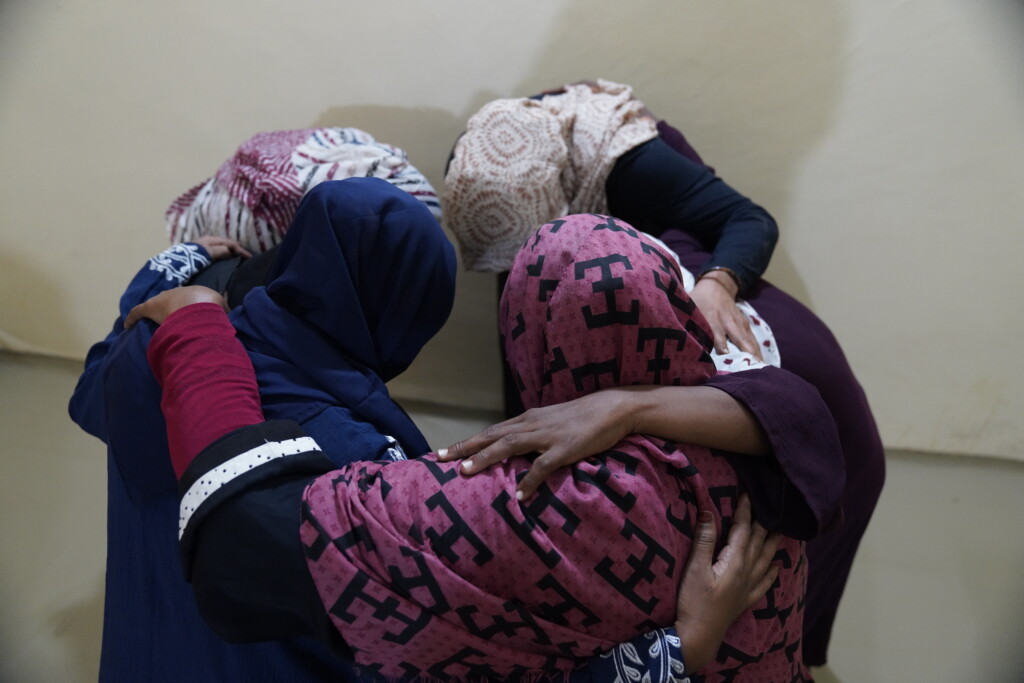
Women frontline workers iin Sudan (File photo for illustration: UNICEF / Tess Ingram)
Report by Radio Dabanga
Despite the pivotal role Sudanese women play at the societal and humanitarian levels after two years of war, their presence at decision-making tables and their participation in negotiation processes are limited and symbolic, failing to reflect the extent of their contributions or their true suffering. This was emphasised by the UN Deputy Secretary-General, Amina Mohammed, who stated that “the space for women’s voices is shrinking while violence around them is increasing.” She added that women are burying their loved ones in conflict zones while not one in ten negotiators is a woman. She explained that women’s participation in peace talks makes agreements stronger, fairer, and more likely to last because they know what is at stake and experience the consequences of every war in their homes and communities.
However, recent observations of the Quartet’s initiative to end the war in Sudan reveal a virtual absence of women’s participation in the negotiation processes, as the initial stages saw no real representation for women. This survey gathers the opinions of Sudanese women leaders and activists on the need for women to be effectively represented in the Quartet initiative, and reviews their demands for women to be involved in all stages of negotiation and for their agenda to be integrated into the peace outcomes to ensure justice and stability.
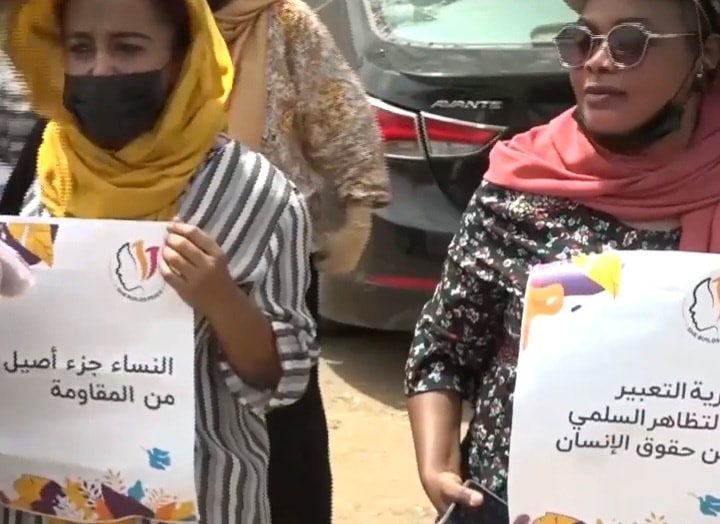
Late and marginal example
Feminist activist Rabha Ismail Mohammed asserted that all previous initiatives, including the Quartet, failed to provide genuine participation for women. Their representation was often delayed or marginal, and they did not have a central role at the negotiating table. She argued that women’s participation must begin from the very inception of any initiative or negotiating body to ensure their influence at all stages of the process, from mediation to committees and mechanisms for reaching agreements and achieving peace.
Rabha emphasised the need for inclusivity to encompass Sudan’s vast diversity, including all women, whether from grassroots communities or unaffiliated with any organisations, to ensure that the peace agenda reflects their needs and aspirations. She also stressed the importance of supporting women economically and empowering them through training and the necessary skills for effective participation, ensuring they have a genuine role at every stage of the peace process, from committees and mediation to participating delegations and stakeholders.
Who are the women who will participate?
Political and human rights activist Nimat Koko Mohamed, coordinator of the Sudanese Women’s Platform for Stopping War and Building Peace, warned of the danger of excluding genuine feminist bases from any political or negotiation process, stressing that choosing women who do not represent the reality of the affected majority will reproduce the old political crisis.
She explained that the four-party initiative does not represent a comprehensive roadmap unless it is based on a purely Sudanese vision, noting that the current dialogue tracks under the umbrella of the African Union or the Cairo initiative include remnants of the former regime, which poses a danger to the forces of revolution and change.
Koko emphasised that women’s participation must be grounded in reality, given that the vast majority of displaced persons and refugees are women who bear the responsibility of supporting their families. She stressed that including women from all backgrounds is essential for developing a genuine agenda for peacebuilding and shaping the country’s future. She also called for clear and transparent criteria for selecting women representatives both within the country, in displacement camps, and in countries of refuge, to ensure authentic representation of affected groups.
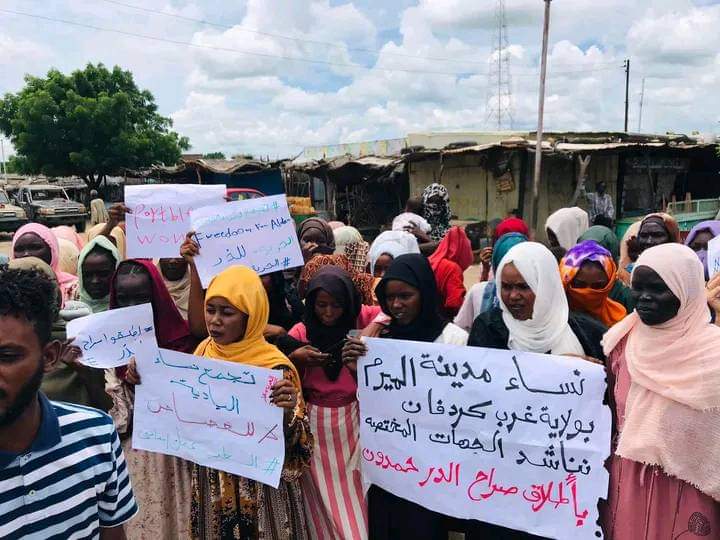
Victims and perpetrators
Rahma Atiq El Kanzi, a member of the Sudanese Women’s Network and a political and civil activist, believes that women in Sudan are both victims of violence and serious violations and active participants at the same time at the community and family levels.
She added that women played a pivotal role in delivering aid, supporting displaced people, managing shelters and community kitchens, and shouldering the responsibility of providing for families in the absence of men. They also forged alliances between initiatives and civil and political organisations to develop a shared feminist agenda aimed at ensuring their suffering and needs are reflected in negotiations and that they have a genuine and effective voice in shaping solutions.
Rahma emphasised that women’s participation must be comprehensive at all levels of the negotiation process, including official parties, negotiating committees, and monitoring mechanisms, taking into account geographical, social, and political diversity and including internally displaced and refugee women. She stressed that all these efforts must be based on a commitment to women’s right to participate, including protection, accountability, and contributing to the formulation of a sustainable and just peace.
“Our agenda was excluded from the Juba Agreement.”
Azza Mohamed Ahmed Hassan, a member of the (Mansam) Coordination Committee, pointed out that previous peace agreements were made in isolation from women or with limited symbolic participation, and they did not have a real role in decision-making, which resulted in major mistakes against Sudanese society.
She emphasised that women have a clear agenda and long-standing alliances, and that their work through feminist groups should continue without waiting for anyone’s permission, with their representatives being chosen by themselves, free from political or military interference. She clarified that women need not be a single group; they can work in multiple alliances, provided that their priorities are clear and unified during discussions and negotiations.
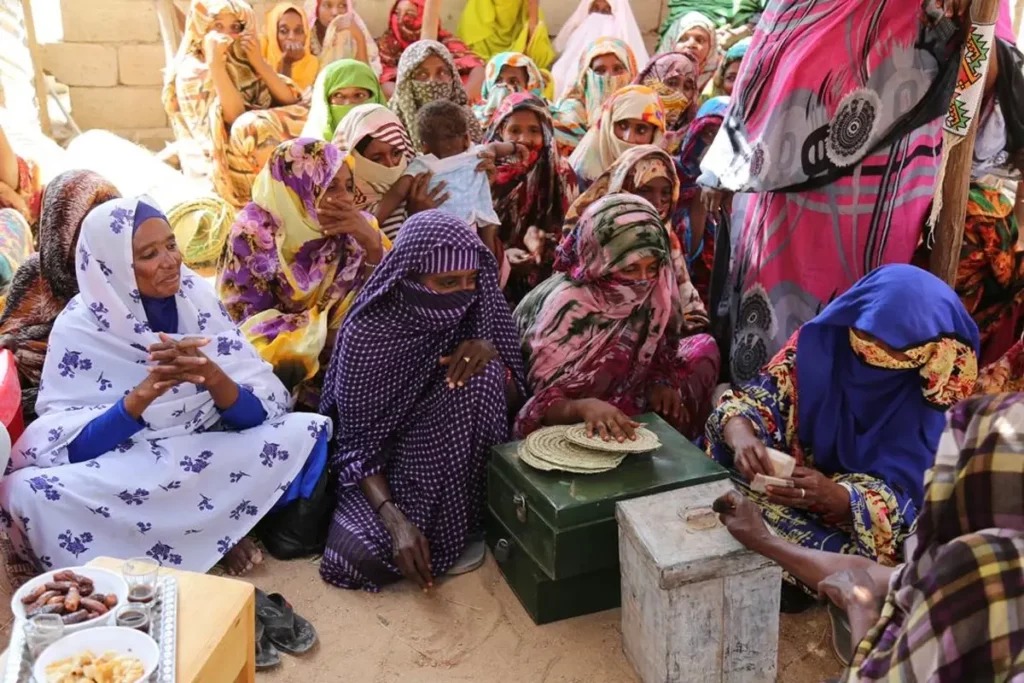
Sustainable peace cannot be achieved without women
For her part, Saadia Issa Ismail, a disability expert and member of the Regional Coordination Committee for Women’s Empowerment, affirmed that the Quartet initiative represents a glimmer of hope for women seeking peace. However, she emphasised that sustainable peace cannot be achieved without effective women leaders and a clear roadmap that includes women as an essential component.
She stressed the necessity for women to be active decision-makers, not merely symbolic participants, and to be part of all negotiation and technical mechanisms to ensure the integration of their perspectives, particularly regarding humanitarian ceasefires, the delivery of aid, and the opening of corridors, while taking into account geographical and social diversity.
Participation via two tracks
Ihsan Abdelaziz, coordinator of the Women Against Injustice campaign and a leading figure in the Popular Movement and the Revolutionary Democratic Current, emphasised that the success of peace hinges on the inclusion of women in all stages of negotiation, noting that those most affected are the most committed to peace. She explained that participation can occur through two tracks: one involving women from both sides of the conflict at the main negotiating table, and the other involving women politicians and civil society organisations to support the negotiations, incorporate the feminist agenda and peace requirements, and adhere to UN Security Council Resolution 1325 to ensure transitional justice and reparations.
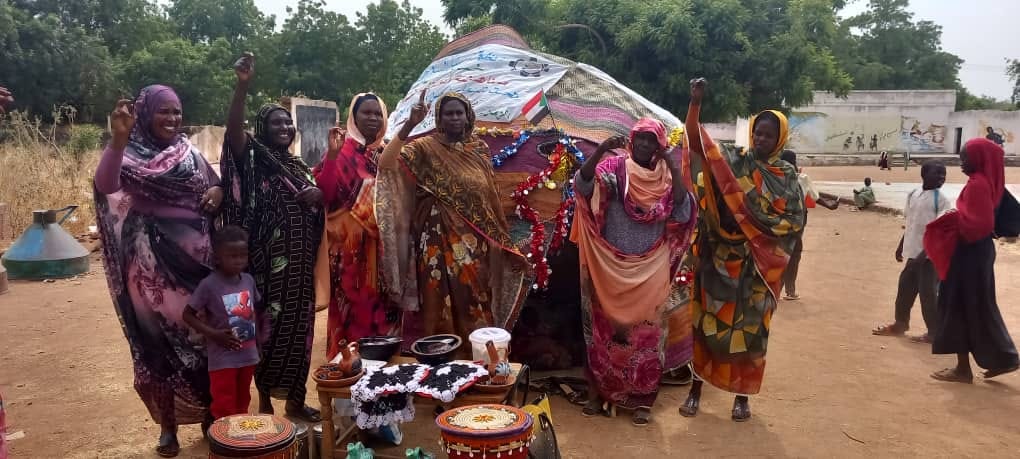
The Quartet lacks the power to end the atrocities
Hala El Karb, the regional director of the Strategic Initiative for Women in the Horn of Africa (SIHA), pointed out that what is happening in Sudan is not merely a war, but a series of atrocities in which civilians are used as weapons. This necessitates a comprehensive negotiating table to address all the complexities of the crisis.
She emphasised that women’s participation is not merely symbolic, but essential to ensure that women’s interests and suffering are central to the negotiations, with a clear role in formulating and implementing solutions. She added that the four-party initiative alone is insufficient to end the atrocities.
Lack of a unified vision among initiatives
Amira Osman, head of the “No to Women’s Oppression” initiative, believes that peace cannot be achieved without a genuine and effective feminist vision capable of addressing the root causes of wars and preventing their recurrence. She pointed out that women are often absent from the negotiating table, and their presence is limited and merely symbolic. She stressed the importance of developing a unified feminist vision that guarantees women’s participation in decision-making at all levels to achieve a sustainable and just peace in Sudan.
All the speakers stressed that women’s participation is not a favor or a symbolic choice, but an inevitable necessity to ensure justice and stability, and that no real peace process can succeed without women being an active and influential party in all stages of negotiation and final outcomes.
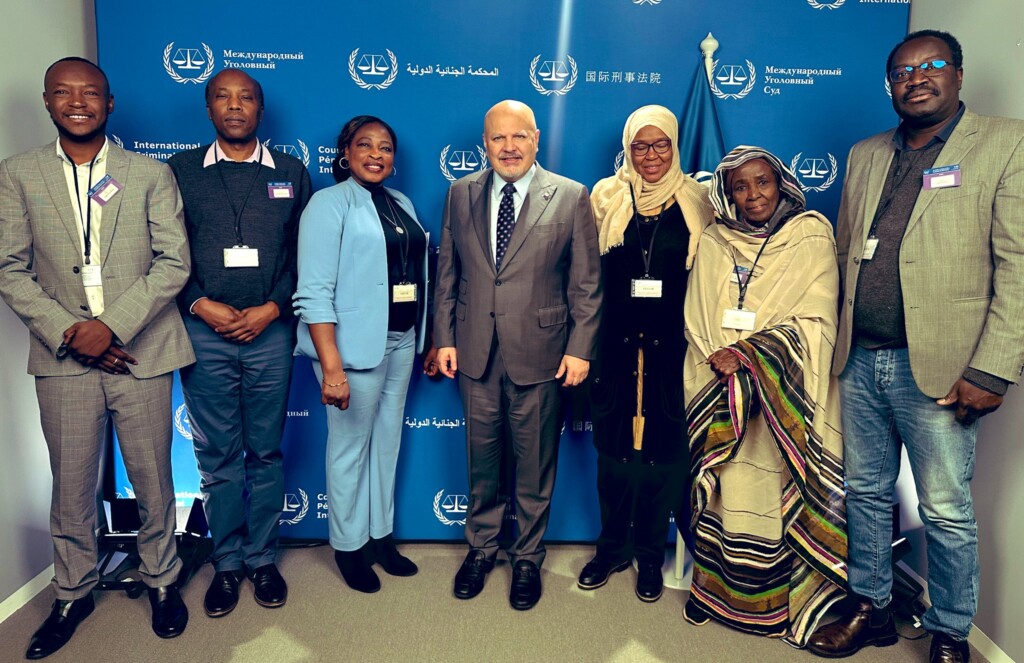











 and then
and then